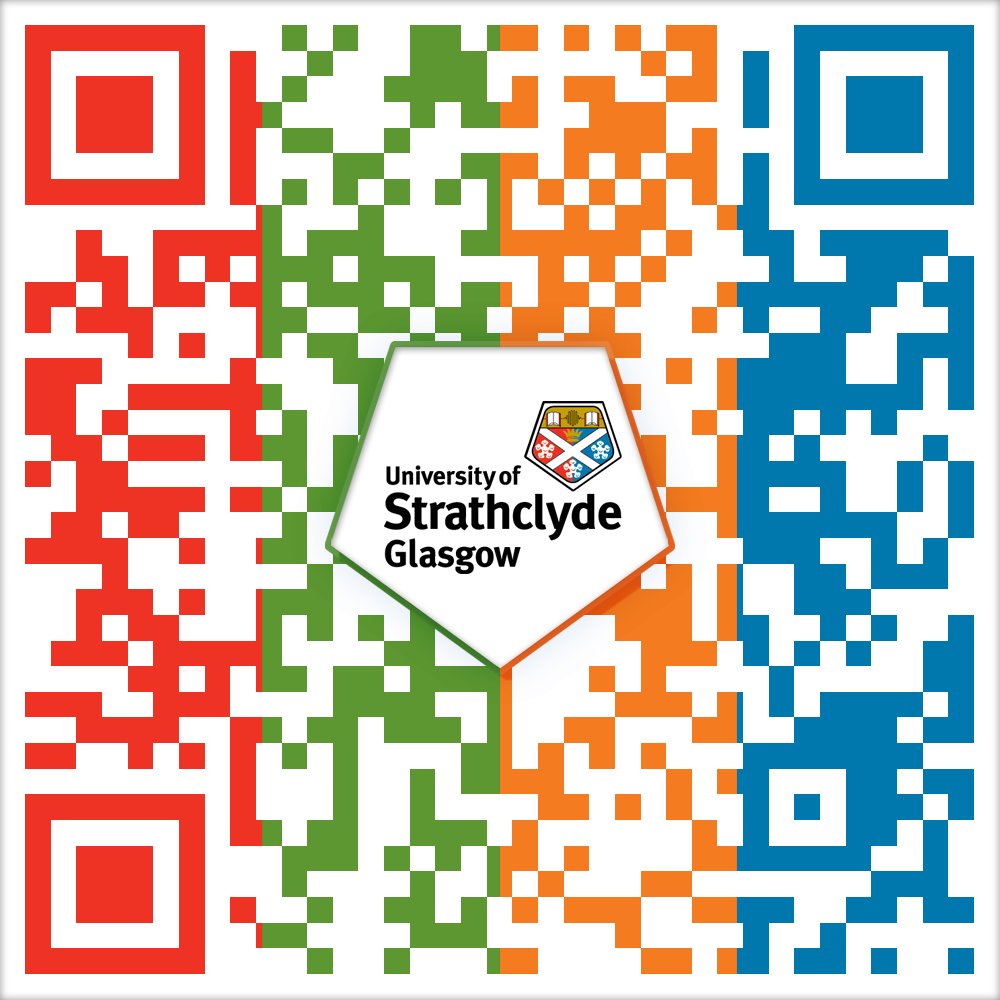BSc Hons Physics (Donghua University)
ApplyKey facts
- Accreditation: Institute of Physics for BSc (Hons)
- Study mode and duration: full time, 4 years (2 years at Donghua, 2 years at Strathclyde)
Apply: Available only to eligible students from Donghua University
Scholarship: 15% tuition fee scholarship from the university and a 10% tuition fee scholarship from the department
-
Ranked: 1st in the UK for Physics by the Daily Mail University Guide Subject Tables 2025
Study with us
Our BSc (Hons) course connects with your first two years at Donghua University and gives you the opportunity to delve deeper into the fascinating world of physics and complete a project in one of our research groups.
- become part of our University community which is home to over 30,000 students from more than 140 countries
- English language classes available before and during your studies
- join Strathclyde in Year 3 and graduate with a degree in Physics after two years
- develop the knowledge and skills you’ll need to become a successful physicist and maximise your career options
- gain from the strong links our Chinese staff members have to Chinese institutions
- benefit from a degree structure that allows you to tailor your fourth year studies to your particular interests
The Place of Useful Learning
UK University of the Year
Daily Mail University of the Year Awards 2026
Scottish University of the Year
The Sunday Times' Good University Guide 2026
Why this course
If you are naturally curious about the world around you and want to tackle some of the biggest questions in science while developing critical thinking and analytical skills wanted by a range of industries, our BSc (Hons) Physics will provide a solid foundation from which to build.
Our physics curriculum is influenced and delivered by our world-leading academics who bring their passion for cutting-edge science to all aspects of their teaching. From lectures and workshops to practical laboratories and corresponding computer classes, you will find a challenging and engaging set of modules to choose from.
In Year 3, you will conduct experiments in our recently refurbished experimental laboratories. Here you will develop your methodical data taking practices using industry-grade equipment. Your analytical and data interpretation skills and problem-solving ability will continue to expand through the years and culminate in tackling a project in one of the Department’s research groups.
By choosing to complete your Physics degree at Strathclyde, you will become part of a modern, research-focussed community who are committed to developing the next generation of physicists. Our department offers its full support to our international students helping them to become part of our diverse community.
Accreditation
Our BSc (Hons) in Physics is accredited by the Institute of Physics for the purpose of fully meeting the educational requirement for Chartered Physicist.
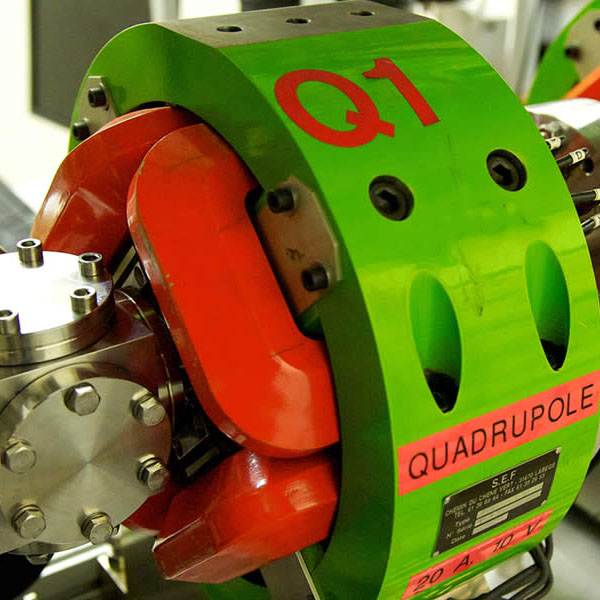

What you'll study
The degree is a four-year programme, with Year 1 and 2 undertaken at Donghua University and Year 3 and 4 at the University of Strathclyde.
At the University of Strathclyde, each year’s curriculum consists of 120 credits including both compulsory and optional modules.
In Year 3, you’ll start to relate the physics of mechanics, waves, electromagnetism and quantum physics to the intricacies of the quantum realm, thermodynamics and solid-state physics. You will apply your problem-solving skills to more sophisticated theoretical, computational and experimental challenges and you will get to choose optional modules to extend your knowledge in these areas. Dedicated activities will support you to communicate challenging ideas to non-specialists and prepare you for year 3 and future careers.
In Year 4, you’ll apply your knowledge and skills to undertake an individual project embedded in one of our research groups supervised by a member of staff. The project may be experimental, theoretical, or computational physics or a mixture of all three and you will gain experience of research techniques and methods of disseminating your results. Depending on your interests, you can select optional classes from topics as diverse as nanoscience, photonics and plasma physics through to enhanced quantum physics.
Facilities
The University of Strathclyde’s department of Physics is one of the leading research departments in the UK. We have a range of cutting-edge research facilities that are equipped with the most up-to-date technology. These include novel optical and electron microscopes, laser systems capable of generating high peak power femtosecond pulses and access to high power computing systems. Students will have access to these facilities when working on their final year projects.
Work placement
The department offers extra credits to students who do a summer vacation project. Students will have the opportunity to either work in industry on a physics related project or in the research laboratories of our academic members of staff.
Chinese students studying at Strathclyde
Chinese students studying in the Department of Mathematics & Statistics offer a strong support network to new students. The Chinese Students & Scholars Association at Strath Union also offers the opportunity to meet students who study in other departments, through their regular social events and opportunities to go on trips to other areas of Scotland.
Chat to a student ambassador
Want to know more about what it’s like to be a Science student at the University of Strathclyde? A selection of our current students are here to help!
Our Unibuddy ambassadors can answer all your questions about courses and studying at Strathclyde and offer insight into their experiences of life in Glasgow and Scotland.
Learning & teaching
The following teaching methods are used in Physics:
- lectures (using a variety of media including electronic presentations)
- tutorials (small group learning, to further focus on topics covered in lectures)
- interactive learning (using web-based teaching resources)
- directed and open-ended laboratory work
- group-based learning
- self-paced project work
The University offers four hours per week of free in-sessional English classes throughout the academic year to help students improve their English both for studying and everyday communication.
Assessment
Knowledge, understanding and subject-specific skills are assessed by coursework, assignment, reports, presentations and written examinations.
Why Strathclyde
Strathclyde is a multi-award-winning university.
We offer a flexible, innovative learning environment, where you’ll enjoy a first-class experience. We're currently transforming our campus, with investment set to reach £1 billion by 2025. This includes a new Learning and Teaching hub which will further enhance the learning environment for our students. The campus also has a dedicated sports facility, Strathclyde Sport, which offers a range of sports and wellbeing facilities.
Our campus is located in the city centre of Glasgow, Scotland’s largest and most vibrant city. The National Geographic named Glasgow as one of its 'Best of the World' destinations, while Rough Guide readers voted Glasgow the world’s friendliest city!
Glasgow is also the gateway to Scotland, with an international airport and excellent travel links to explore and visit Scotland’s most scenic locations including the Scottish Highlands and Scotland’s capital city Edinburgh, during your time studying at Strathclyde.
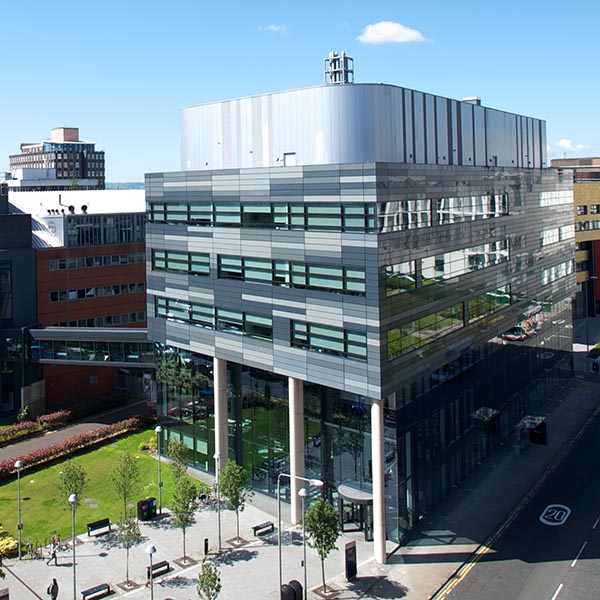
Accommodation
We provide secure accommodation on campus for eligible students. Our accommodation is close to the main University buildings, library, computer labs, sports facilities and the Students’ Union.
Our dedicated Accommodation Services team are located in the campus village and the Student Village Reception is open 24 hours every day, with the experienced team always available to help you.
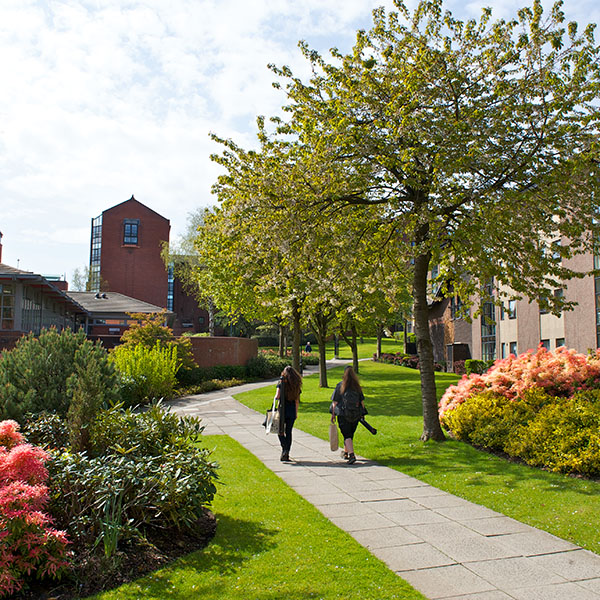
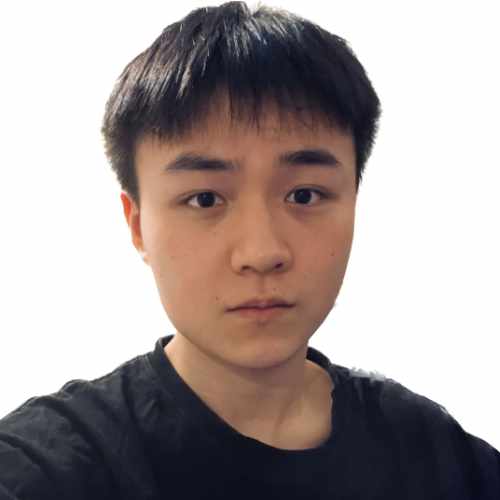
Donghua University and the University of Strathclyde have had many years of friendship and co-operation. When I was at Donghua University, I attended a presentation by a teacher from the University of Strathclyde. I was attracted by the modern campus facilities and resources as well as the academic excellence and reputation of the university.
BSc Hons Physics – Donghua (fourth year)
Semester 1 & 2 - Compulsory modules
Experimental Physics I (20 credits)
This module involves experiments covering a range of topics relevant to the Physics undergraduate syllabus in Year 3.
The laboratory work is open ended and less structured so you can demonstrate the skills you’ve developed in Year 1 and Year 2 in preparation for the final year project.
You'll develop advanced measurement, data recording and analysis skills and refine your ability to explain what your findings mean.
Quantum Physics & Electromagnetism (20 credits)
Building on what you learned in year 2, this module will extend your understanding of quantum mechanics. We'll introduce operators, expectation values and commutation relationships, and advanced concepts like time independent perturbation theory. In electromagnetism you will exploring the wave like nature of electromagnetism as predicted by Maxwell's equations, Poynting’s theorem, reflection and transmission at a dielectric interface, potentials and gauge transformations, and retarded potentials.
Condensed Matter Physics (20 credits)
Here you'll cover binding forces in solids, bulk material properties, phonons and other forms of collective excitations, crystal structure, elementary concepts of band structure, semi-conductors, magnetic materials and the origins of magnetism, and superconductors.
Gases, Liquids & Thermodynamics (20 credits)
This module covers the physics of gases and liquids and the fundamentals of thermodynamics. This includes the ideal gas law, hydrostatics, isothermal and adiabatic processes, and the laws of thermodynamics. We also present the basic principles of statistical mechanics, and various distributions such as Maxwellian, Fermi-Dirac and Bose-Einstein.
Semester 1 & 2 - Optional modules
Communicating Physics (20 credits)
This module will develop your knowledge base and transferable skills in preparation for the project undertaken in years 4 and 5 of the course. It focuses on effective and concise communication of complex information through oral, written and graphical presentations, literature and group-work skills.
Computational Physics (20 credits)
During this module, you’ll be introduced to the best practises in software development, and the numerical methods that are most commonly used to solve physical problems including linear algebra, partial, ordinary and stochastic differential equations, and Fourier methods. To undertake this module, a prior understanding of Python is required.
Mathematical Physics (20 credits)
This module focuses on introducing new techniques in mathematical physics. You will develop your problem-solving skills through a series of challenging tutorial problems addressing advanced problems both from the topics addressed in this module and from the other core third year modules including quantum mechanics, statistical mechanics and thermal physics, solid state physics and electrodynamics. You will gain an appreciation for how advanced mathematical techniques can be used to aid in solving challenging physics problems and become proficient in applying the techniques you will learn to solve more advanced and previously unseen problems.
Semester 1 & 2 - Compulsory modules
Physics project (40 credits)
The aim of this module is to help you develop as an enquiring, independent physicist, by undertaking a research project. You'll be under the supervision of a member of staff from the department.
Semester 1 - Optional modules
Topics in Solid State Physics (20 credits)
Here you'll track the development of key concepts in solid state physics and how these concepts can be exploited to form functional optical and electronic devices. You will look at the chemistry and physics of crystalline and amorphous materials, with a focus on semiconductor materials, optical activity in solid-state materials, the interaction of semiconductors with light, transistors (bipolar and unipolar), quantum wells and microstructured materials.
Topics in Nanoscience (20 credits)
This module will provide an overview of modern nanoscience. It will discuss basic physics related to low dimensional nanostructures and nanoclusters, nanofabrication including top-down and bottom up approaches, characteristics techniques including electron spectroscopy and microscopy, scanning probe microscopy, and optical spectroscopy and microscopy. Noble metal nanoparticles, quantum dots, carbon nanomaterials will be introduced. In particular it will cover the physical and chemical properties of nanoparticles, their production, applications in physics, chemistry and medicine along with issues relating to nanotoxicity and the ethics of medical nanoscience.
Topics in Photonics (20 credits)
During this module you'll gain an insight into laser physics, laser optics and nonlinear optics as used in many photonic laboratories. This will include properties of laser radiation, beam propagation and ray transfer matrices, nonlinear polarization, and second and third order nonlinear effects such as second harmonic generation and the optical Kerr effect.
Topics in Quantum Optics
Here you'll learn about modern experimental and theoretical developments in the field of quantum optics and atom optics.
Semester 2 - Optional modules
Topics in Physics (20 credits)
Here you'll be introduced to state-of-the-art developments in generation and use of charged particles in various forms such as free electron beams, plasmas and astrophysical plasmas. This will include basic plasma physics theory (particle orbit theory, fluid equations, ideal and magnetohydrodynamics, wave equations and kinetic theory), electron optics and electron microscopes, free electron devices and radiation sources. You will also look at the history and geography of our galactic environment, red giants, white dwarfs, supernovae, neutron stars, black holes and physics of the Big Bang.
Topics in Theoretical Physics (20 credits)
In this module we’ll demonstrate the large-scale structure of space-time. You will develop the necessary mathematical concepts (4-vectors, the metric tensor, covariant derivatives, connection coefficients and the Riemann curvature tensor) and use them to derive Einstein's gravitational field equation and look at idealized cosmological solutions for the large-scale structure of the universe, including the standard model. You will study gravitational collapse and the properties of black holes.
Experimental Physics II (20 credits)
This module extends the laboratory work developed in years 1 and 2 and involves experiments covering a range of topics relevant to the 3rd year Physics UG taught syllabus. The laboratory work is open-ended so you're able to fully explore the experiments in preparation for the final year project. You will develop advanced measurement, data recording and analysis skills and learn how to report experimental outcomes in the form of a journal paper. This module covers 2 experiments.
Topics in Complex and Nonlinear Systems (20 credits)
During this module you will learn about simple systems that exhibit non-linear and complex behaviour. You will find how to analyse non-linear systems and find stationary points, learn to analyse bifurcation diagrams and identify key features on these diagrams, look at periodic solutions to non-linear systems and recognise oscillations, and key features of these oscillations, and understand the origin of deterministic chaos and explain key features relating to chaos.
Topics in Quantum Physics (20 credits)
This module will provide a broad foundation in concepts and techniques from quantum mechanics, and provide experience in the practical application of these techniques to describing state-of-the-art experiments and quantum technologies.
Applied High Performance Computing (20 credits)
This module provides an up-to-date introduction to High Performance Computing (HPC) and the use of modern parallel computers to tackle the most demanding problems in science in general and Physics in particular. It provides an overview of the basic building blocks of High-Performance Computers and how they can be utilised effectively. The practical use of HPC will be demonstrated using application examples drawn from several areas of relevance to 4th year modules offered by the Department.
Entry requirements
| Academic requirements | This degree programme is only available to students from Donghua University, following a successful completion of two years of study on BSc Applied Physics, BSc Optoelectronic Science and BSc Engineering. |
|---|---|
| English language requirements | A minimum overall English language proficiency score of IELTS 6.0 (with no score below 5.5) is required. If you need additional support to meet our English language conditions, you may wish to consider our Pre-sessional courses in English. If you already meet our English language requirements and wish to undertake pre-sessional English classes, you can register for our three-week Online Module 3, which takes place between August and September. This will be refunded if you go on to register on the BSc (Hons) Physics degree. |
Fees & funding
All fees quoted are for full-time courses and per academic year unless stated otherwise.
Fees may be subject to updates to maintain accuracy. Tuition fees will be notified in your offer letter.
All fees are in £ sterling, unless otherwise stated, and may be subject to revision.
Annual revision of fees
Students on programmes of study of more than one year (or studying standalone modules) should be aware that the majority of fees will increase annually.
The University will take a range of factors into account, including, but not limited to, UK inflation, changes in delivery costs and changes in Scottish and/or UK Government funding. Changes in fees will be published on the University website in October each year for the following year of study and any annual increase will be capped at a maximum of 10% per year. This cap will apply to fees from 2026/27 onwards, which will not increase by more than 10% from the previous year for continuing students.
| International | £29,350 |
|---|---|
| Visa & immigration | International students may have associated visa and immigration costs. Please see student visa guidance for more information. |
| Scholarships | All students will receive a 15% tuition fee scholarship from the university and a 10% tuition fee scholarship from the department. |
Please note: All fees shown are annual and may be subject to an increase each year. Find out more about fees.
International students
We've a thriving international community with students coming here to study from over 140 countries across the world. Find out all you need to know about studying in Glasgow at Strathclyde and hear from students about their experiences.

Glasgow is Scotland's biggest & most cosmopolitan city
Our campus is based right in the very heart of Glasgow. We're in the city centre, next to the Merchant City, both of which are great locations for sightseeing, shopping and socialising alongside your studies.
Careers
Physics powers careers!
Physics needs imagination, curiosity and maths and in return a physics course develops analytical and critical thinking skills to solve real-world problems in many contexts. These skills are needed in research careers in industry, government and academia, technical roles such as aerospace and software engineering, quantitative roles including financial analyst, healthcare roles such as medical physicist or radiation protection and communication roles such as science journalism and teaching.
Throughout the course, you’ll develop skills that will help you become a successful physicist and maximise your career options.
Our graduates have a variety of roles from research and development to production and management in every field of science and industry. Some work as medical physicists and environmental physicists, others as engineers, patent officers, technicians and research scientists.
Prospects has an extensive list of job options related to a degree in physics.
Our Careers Service provide careers information, advice and guidance to help our students and graduates achieve their career goals, with support provided to graduates up to five years after graduation. The Careers Service team regularly host on-campus seminars and events which provide opportunities for students and graduates to network with employers and industry professionals.
Apply
This degree programme is only available to eligible students from Donghua University, following successful completion of two years of study on the BSc Applied Physics, BSc Optoelectronic Science and BSc Engineering.
You'll typically receive your offer of admission within four weeks of applying.
Our dedicated Admissions Team are available to support you every step of the way.
Start date: Sep 2026
(3 year entry)



